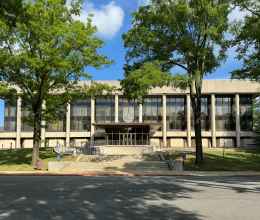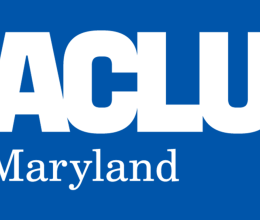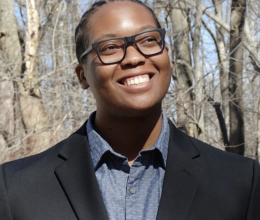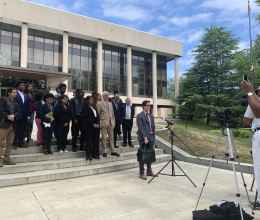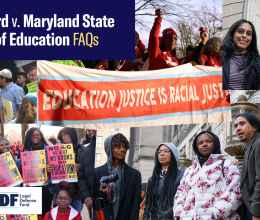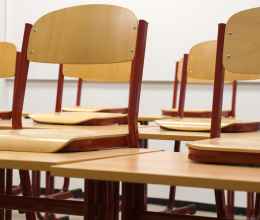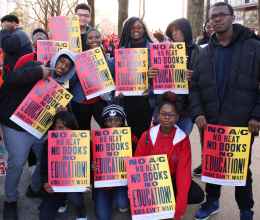
2019 MARYLAND GENERAL ASSEMBLY
1. EQUITABLE EDUCATION FUNDING
Ensure Full and Adequate Funding of Public Education
The ACLU of Maryland’s (ACLU-MD) advocates work to uphold Maryland’s Constitutional duty to ensure fair and adequate access to the resources that all students need to meet state standards. According to the 2016 Adequacy of Education Funding in Maryland (“Adequacy Study”) report, a $3 billion statewide adequacy gap exists – this is the amount by which the current formula is underfunded. Adequate education funding is an ongoing concern due to factors including outdated wealth measures, dramatic shifts in the student population and needs, and flat funding over the years. During the 2019 Legislative Session, we will work to ensure full funding of the current education funding formula, including the formula’s inflation factor, work to reduce funding cuts to additional programs that would benefit Maryland students, and fight for a new and adequate formula.
Update the Education Funding Formula
The “Kirwan Commission” (Commission) was created in 2016 to review the findings of the expert’s Adequacy Study and make recommendations on the needs of our statewide public education system by December 31, 2017. Unable to meet the initial deadline, the Commission requested an extension to divide into work groups by priority area and cost out identified programs by the end of this year. On December 18, 2018, at the request of the Senate President and Speaker of the House, we learned that the Commission will continue its work through fall 2019. This is an extremely disappointing development.
The ACLU-MD will demand urgency, equity, and comprehensive action for Maryland’s children. In addition to incorporating aspects of the 2016 two-year study on school funding, the Commission must also adjust their recommendations to respond to the concerns outlined in a report of observations and recommendations on equity provided by Dr. Ivory Toldson. The following are just a few of the critical policies needed to bridge opportunity gaps and transform outcomes for all students across the state:
- Equity in provisions for state and local contributions to school funding
- An accurate count of low-income students and dedicated funding for schools in concentrated poverty
- Short phase-in of high quality full-day pre-k services for low-income three- and four-year-olds
- Support and funding for the community schools strategy, which centers partnerships and family engagement – including greater emphasis on student supports and extended day services
Oppose Public Funds for Private & Religious Schools
As a number of school systems across the state face underfunding of programmatic and facility needs, we believe that it is a disservice to public school students to divert much-needed public dollars away from the state public school system. In 2017, the General Assembly added millions the budget appropriation for the “BOOST” voucher program for students to attend private schools. While the BOOST program was billed as a way to expand opportunity to underprivileged students, 73% of the scholarships went to students who were already enrolled in private schools. Further, more than 97% of the schools receiving the funding are religious schools, which is a breach of America’s commitment to the separation of church and state. We will continue to oppose the use of taxpayer dollars to fund private schools that do not meet state accountability standards, and we will fight for legislation to hold private schools that get public funds to the same non-discrimination standards as public schools, especially for students with disabilities and LGBTQ+ students.
2. MODERN, SAFE SCHOOL FACILITIES
Support Programs for Public School Construction and Building Repairs
School districts across the state have over $20 billion in unmet school construction needs. In Baltimore, the ACLU launched the Transform Baltimore: Build Schools, Build Neighborhoods campaign with our partners and won a $1 billion commitment to begin rebuilding Baltimore City’s deteriorating school buildings, the oldest in the state. While the program — now called 21st Century Schools — is estimated to reconstruct 23-28 Baltimore school buildings by 2022, there are more than 100 school buildings in serious disrepair that are not covered by this program.
The ACLU-MD will work to:
- Secure additional state funding to continue the 21st Century Schools program;
- Support $400 million in state capital funding for school construction and increase the allocation to City Schools to add to the number of capital renewal projects completed;
- Ensure that state funding for the statewide Aging Schools Program and other small school construction programs are maintained in the capital budget;
- Work to ensure the equitable distribution of any additional state funding for school construction proposed by the Governor or legislature.
3. POSITIVE SCHOOL CLIMATE
Support Strong School Climate
All students deserve to learn in schools that are safe and administer discipline policies fairly. Research shows that students of color and students with disabilities disproportionately receive harsher consequences for behavioral issues, even when punishing for the same or similar incident. Ineffective behavior management practices impact thousands of students across the state, cause loss of critical instruction time, and increase the likelihood of drop-out. We support practices that address inappropriate behavior while teaching problem-solving skills such as restorative practices. The ACLU-MD will continue to support legislation that offers better training and greater specialized supports for students and school staff to create and sustain positive school climates.
